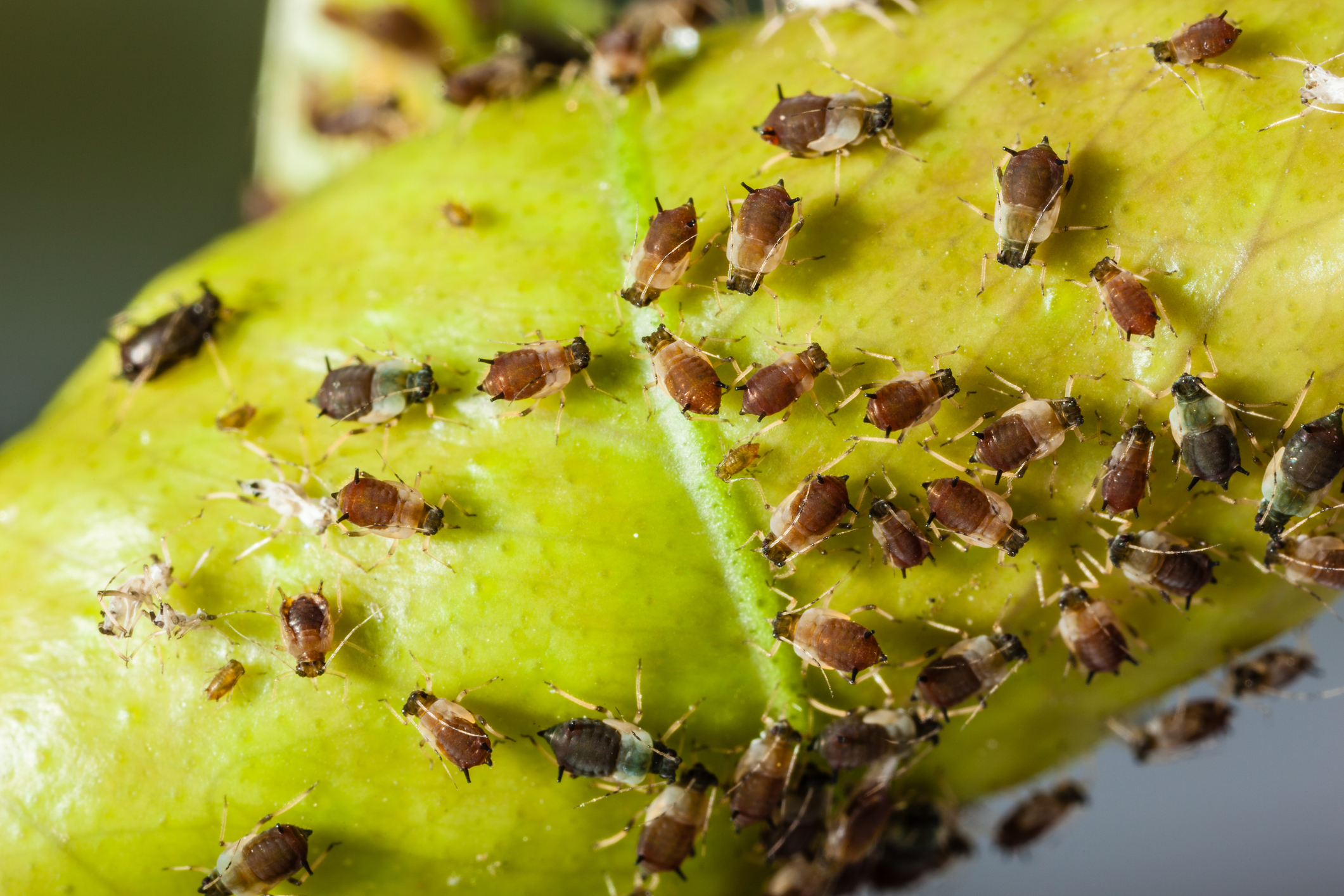Your garden is getting into gear and growing, but you are noticing something not right. Something has been munching on your months of hard work and causing problems.
The culprit could be aphids.
Aphids can quickly become a nuisance in your garden, wreaking havoc on your beloved plants and flowers. These tiny insects feed on plant sap, causing stunted growth, yellowing leaves, and even transmitting diseases. Fortunately, there are several effective methods to eliminate aphids and restore the health and beauty of your garden.
Here are some practical and eco-friendly ways to get rid of aphids and keep your garden thriving.
Regularly inspect your plants for signs of aphid infestations. Look out for clusters of small, soft-bodied insects, often found on the undersides of leaves or near new growth. Check for distorted leaves or sticky honeydew residue, which aphids secrete as they feed. Identifying aphids early will help you take prompt action to control their population.
One simple yet effective method to remove aphids is by spraying them off your plants with a strong stream of water. Use a hose with a spray nozzle or a spray bottle filled with water to dislodge and wash away the aphids. Make sure to target the undersides of leaves where aphids tend to hide. Repeat this process every few days until the aphid population is under control.
Encourage natural predators of aphids, such as ladybugs, lacewings, and parasitic wasps, to your garden. These beneficial insects feed on aphids and can help control their population naturally. You can attract these predators by planting nectar-rich flowers, installing insect hotels, or purchasing them from reputable suppliers.
Create your own organic aphid spray using common household ingredients. One effective recipe involves mixing a teaspoon of liquid dish soap with a quart of water. Spray the solution directly on the affected plants, focusing on the aphid-infested areas. The soapy water suffocates the aphids and disrupts their feeding activity. Remember to test the spray on a small section of your plants first to ensure it doesn’t cause any damage.
Neem oil is a natural insecticide derived from the neem tree. It acts as a repellent, disrupts the aphids’ life cycle, and can inhibit their feeding. Mix neem oil according to the instructions on the packaging and spray it on your plants, making sure to cover both the upper and lower surfaces of the leaves. Apply neem oil in the early morning or late evening to avoid harming beneficial insects.
If the aphid infestation is localized, pruning and removing heavily infested plant parts can be an effective strategy. Trim off affected leaves, stems, or buds and dispose of them in sealed bags or burn them to prevent the aphids from spreading further.
Consider planting aphid-repellent plants, such as marigolds, chives, mint, or garlic, alongside your susceptible plants. The strong scents of these companion plants can deter aphids and reduce the likelihood of infestation.
Dealing with aphids in your garden can be frustrating, but with the right strategies, you can effectively control their population and protect your plants. Remember to regularly monitor your garden, employ natural predators and homemade sprays, and maintain a healthy garden ecosystem. By implementing these techniques, you’ll create an environment where aphids struggle to thrive, allowing your plants to flourish and bloom to their fullest potential.

